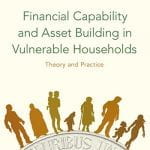Social workers are all too familiar working with families and individuals who face financial vulnerability. The COVID-19 epidemic has only heightened the issue and expanded the number who are financially at risk due to economic and market forces.

In response to a growing request for teaching resources, the Center for Social Development is developing a series of online modules to train and support faculty in their efforts to teach and integrate FCAB content into the social work curriculum at the undergraduate and graduate levels. These resources may also be helpful to social work practitioners already in the field. The modules can be used standalone but are also intended to augment material in the FCAB textbook Financial Capability and Asset Building in Vulnerable Households: Theory and Practice.
A distinctive focus is the emphasis on poverty, inequality, race/ethnicity, and vulnerable population groups. The modules address micro, mezzo, and macro practice.
The resources include PowerPoint presentations for professors teaching from the book, notes on the PowerPoint presentations, short videos, and reference lists.
Seven modules are available:
- What is FCAB?
- History of Financial Capability and Asset Building in America: Asset Stripping, Borders, and Autonomy
- FCAB and the Role of Social Work
- Understanding Financial Capability in American Families: A Portrait
- Financial Institutions, Products, and Services
- Credit and Credit Building
- Consumer Debt, Problem Debt, and Debt Negotiation
The resources are free to use but require some basic information: your name, email address, affiliation, intended use, and which module(s) you intend to use. Please complete the form below to access the free module resources.
We thank these organizations for supporting CSD in developing FCAB curricular materials:
- Equifax Foundation
- The Arthur Vining Davis Foundations
- Wells Fargo Advisors